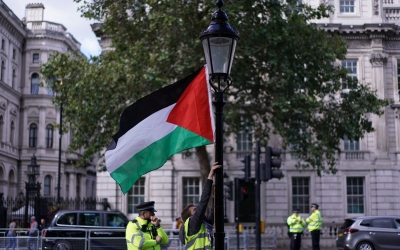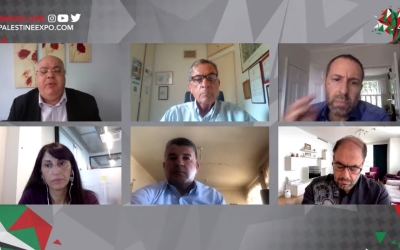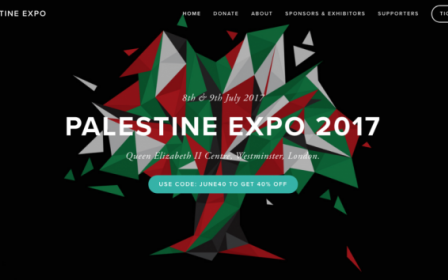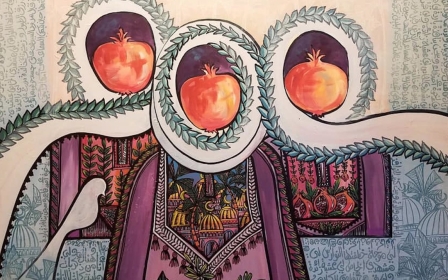#LoveAqsa: Online event celebrates Palestinian culture and heritage
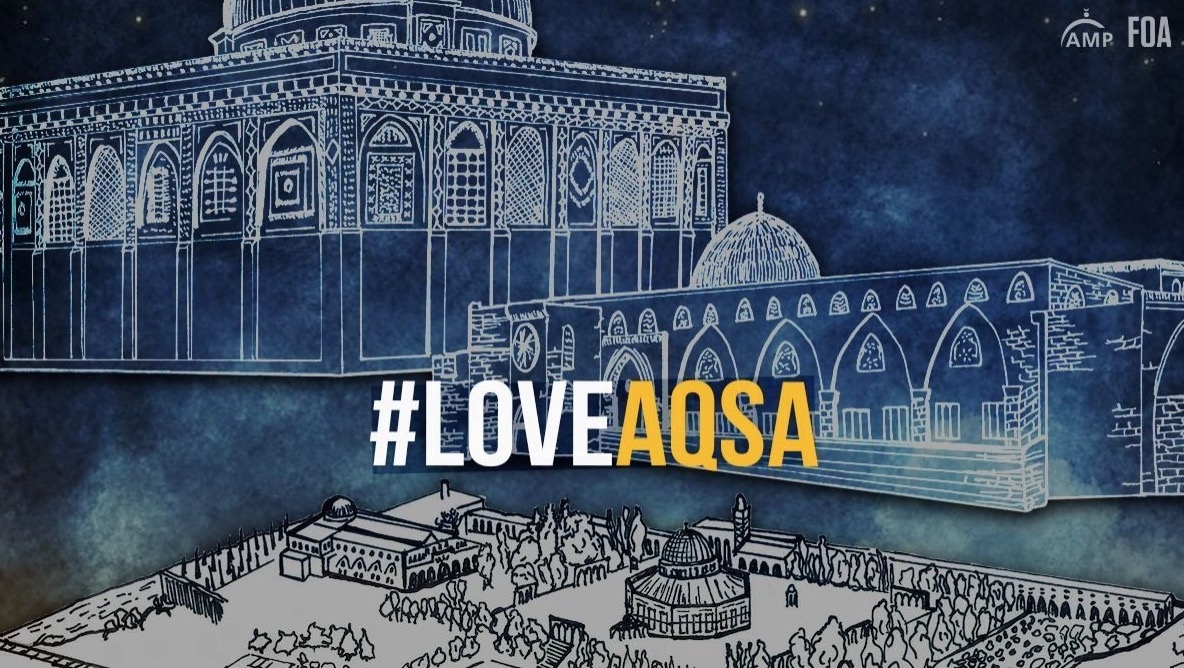
A week-long online conference organised by the UK-based non-profit organisation Friends of Al Aqsa (FOA), aims to raise awareness about Palestinian heritage and Jerusalem's al-Aqsa mosque.
The event, which started on 6 March and runs until 12 March, consists of lectures, workshops and panels featuring Palestinian public figures, among others.
The organisers say they want to educate those who sympathise with the Palestinian cause on how best to support people living under occupation, as well as emphasising the reverence Muslims have for the al-Aqsa mosque, which is the most sacred site in Islam after the Grand Mosque in Mecca and the Prophet's Mosque in Medina - both in Saudi Arabia.
Ismail Patel, the founder of FOA and one of the organisers of the event, said that it was essential to convey the symbolic importance of the al-Aqsa to an international audience.
“The main ambition was to revive the love and affection (for the Palestinian cause) and for people to understand the history and heritage of al-Quds (Jerusalem) and particularly the al-Aqsa mosque," Patel said.
“Al-Aqsa is a symbol of resistance, so the event is for people of all colours and faiths to understand that it can work as a symbol for them too... it’s a great symbol of resistance for all oppressed people across the globe and it transcends Muslims and Islamic history."
According to Islamic tradition, the Prophet Muhammad visited the site during his miraculous night journey to the heavens, called the Me'raj.
For Jews, the area of the compound is known as the Temple Mount, the most holy site in Judaism and the location of the temple built by the Biblical King Solomon, who is also revered by Muslims.
The FOA event has drawn support from across the world, with people from South Africa, Malaysia, Indonesia, Turkey, the US and UK taking part in the panels or tuning in.
Palestinian solidarity
For Patel, the event was also an important opportunity to highlight the injustices Palestinians living under occupation face.
He said: “Palestinians are going through a very critical period in their history, particularly as the international community is turning a blind eye and allowing Israelis to do whatever they like. This means that international civil society has to rise up for the cause of the Palestinians.”
One of the panels, titled "US/UK policy towards Jerusalem", discussed the impact of former US President Donald Trump’s controversial Deal of the Century policy on Palestinians.
Speaking during one of the panels, Anas Altikriti, founder of the Cordoba Foundation and former president of the Muslim Association of Britain, said recent US policies had dramatically hindered prospects for a just solution to the Israeli-Palestinian conflict.
“The Trump declaration that Jerusalem is the unified capital of the state of Israel imposes an incredible crisis to global diplomacy and politics, because with one fell swoop, one statement and one press conference, Trump managed to undermine decades of the negotiation peace process,” he said.
Challenges for activists
Fellow panelist Shahd Haj Khalil, a London-based Palestinian student and activist, spoke about the challenges many pro-Palestinian campaigners face, as well as her experiences of going back to Palestine as a child and the injustices she witnessed there.
“One of the most important points we highlighted during the panel was how important it is as students to keep spreading awareness and educate people on Palestine. With a lack of awareness, there is a lack of compassion,” she told Middle East Eye.
“Travelling back to Palestine and going through the borders as a child, and waiting at checkpoints under the blazing sun really impacted me and ignited my activism. Shedding light on the plight of Palestinians, through events such as Aqsa week, will help people understand our experiences.
“As a student, battling with the university and fighting to elevate our voices isn't easy. Particularly with things such as the potential of the IHRA definition to stifle our speech.”
Activists used the hashtag #LoveAqsa across social media platforms to show support for Palestinian culture and people.
The event has been a huge success, according to Patel.
“We’ve had a phenomenal uptake. The event has been aired on television, radio stations and we’ve had schools and universities organise events to shed light on the importance of the mosques.”
Last year, FOA hosted an online two-day event, which attracted 350,000 viewers. The event, named Palestine Expo, covered an array of topics, including history, food, arts and culture.
Panel discussions were a key feature of the event, with speakers such as Wadah Khanfar, co-founder of the Sharq Forum and former director of the Al Jazeera network, in attendance. Some of the discussions focused on the plight of Palestinians citizens of Israel, Israel's plans to annex parts of the occupied West Bank, and the relationship between Arab countries and Israel.
In previous years, Palestine Expo was held in London’s Olympia exhibition centre, drawing tens of thousands of attendees. Attendees at past events included Ilan Pappe, a professor at the University of Exeter who writes on the history of Israel and Gideon Levy, a renowned Israeli journalist who writes about human rights issues in the occupied territories.
Middle East Eye delivers independent and unrivalled coverage and analysis of the Middle East, North Africa and beyond. To learn more about republishing this content and the associated fees, please fill out this form. More about MEE can be found here.


